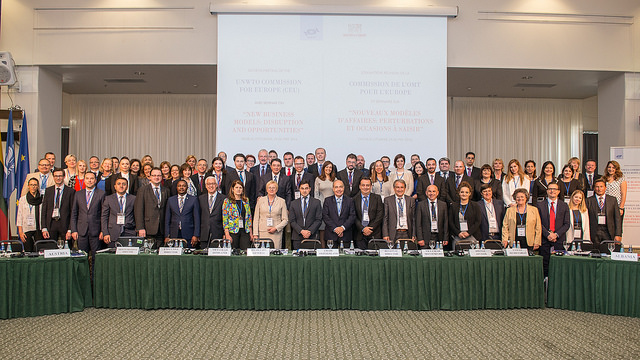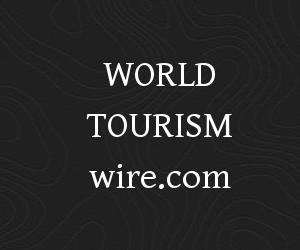
UNWTO Europe Meeting discusses digitalization and new business models
Vilnius, the capital city of Lithuania, this week hosted representatives of 34 countries for the 60th Meeting of the UNWTO Commission for Europe. Discussions focused on major tourism trends and the priorities and agenda of the Organization for the region. The meeting was followed by a seminar on new business models.
“In 2015, there were 29 million more international tourists in Europe than the previous year, raising the total in the region to 609 million. At a time when economic recovery is still quite slow, tourism has been a major contributor to the European economy, generating 404 billion euros in exports,” said UNWTO Secretary-General Taleb Rifai opening the meeting.
“Although the sector continues to progress, many challenges face us. These include a rapidly changing consumer market, the impact of technology, the emergence of new business models, manmade and natural crises, and the quest to make our sector more sustainable and more responsible,” he added.
“Tourism in Lithuania has large growth potential and after this event we have even more stimulus to keep promoting our country and look for new possibilities to support tourism,” said Evaldas Gustas, Minister of Economy of Lithuania and Vice-Chair of the UNWTO Commission for Europe.
Safe, secure and seamless travel, the role of tourism in the Sustainable Development Goals (SDGs) and the International Year of Sustainable Tourism for Development in 2017 were discussed at the Commission meeting.
The following seminar explored the impacts of new business models, and in particular of the so-called ‘sharing economy’, on the tourism sector, and how ‘traditional’ businesses are responding. Speakers included BeMyGuest, the Lithuanian Hotels and Restaurants Association, Room Mate Hotels, TripAdvisor, ReviewPro, HOTREC, NBTC Holland Marketing, the European Commission, the Tourism Chamber of the Republic of Lithuania and Airbnb. Participants agreed that the opportunities afforded by new business models should be embraced but that measures should be taken to ensure both a level playing field and the protection of consumers.
On the occasion of his visit to Lithuania, UNWTO Secretary-General Taleb Rifai met Lithuanian private sector representatives and the Chamber of Commerce. “Sustainable measures and other tourism policies should be applicable to all business models, so that all stakeholders across the value chain hold the same level of responsibility with regard to the sector,” said Mr Rifai. “Only by working in cooperation and by building bridges will the tourism community be able to capitalize on the strong potential of the sector,” he added.
In 2015, Europe remains the world’s most visited region with 609 million international tourist arrivals (51% of the world’s total). International tourism generated 404 billion euros in exports, 3% more than in 2014.
